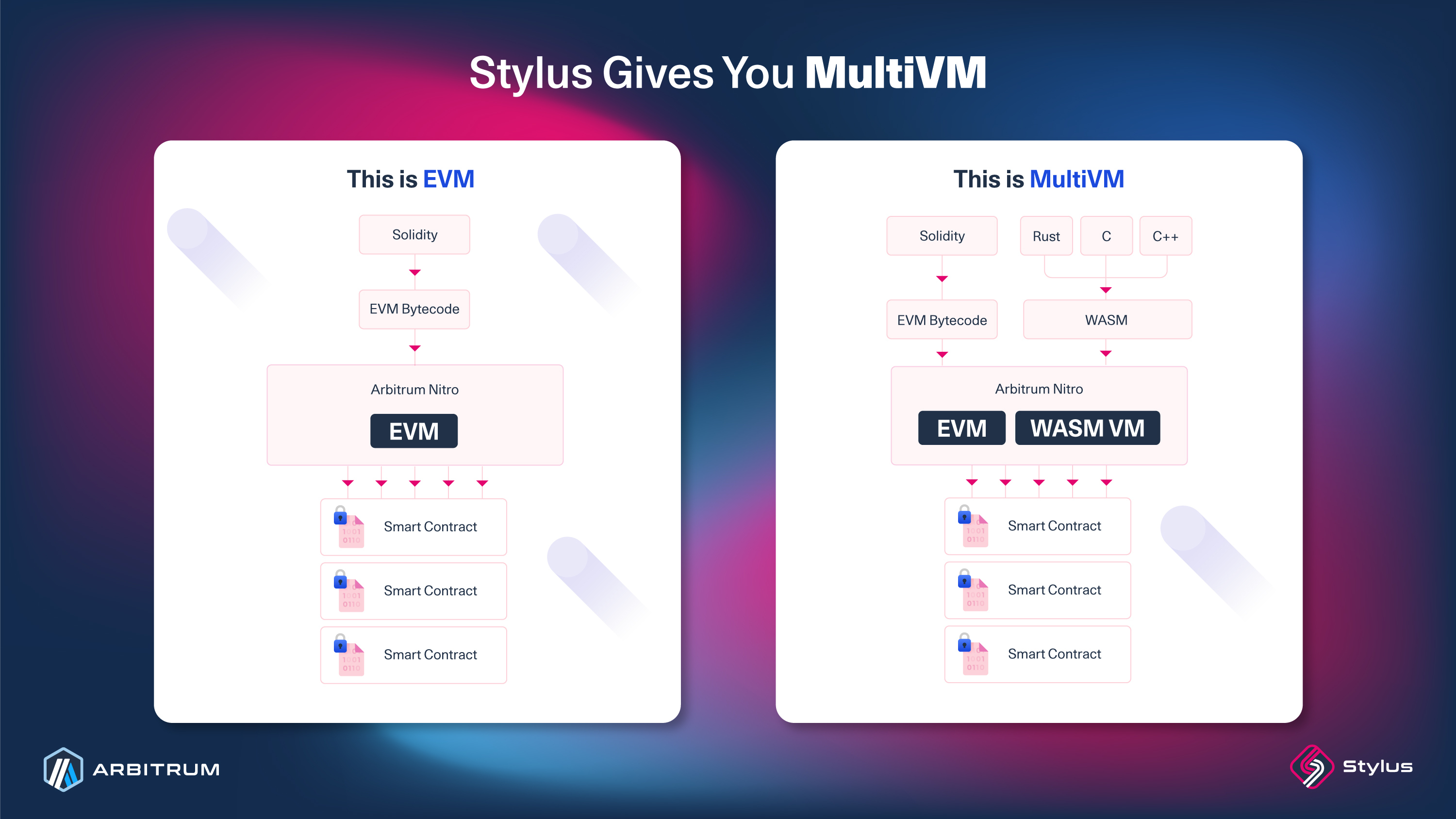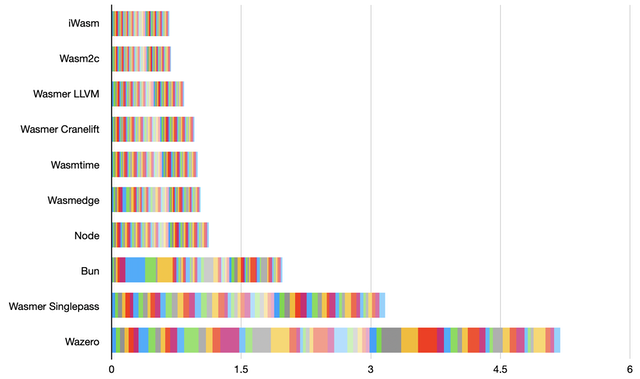I've been dealing with Solidity's garbage performance for years and this finally fixes it. Stylus dropped with ArbOS 32 in September 2024 - you can now deploy WASM contracts next to your Solidity contracts on Arbitrum.
Don't touch your existing Solidity. It keeps working exactly like before. But for the expensive computations that are bleeding your users dry? Write that shit in Rust. The VMs talk to each other so you're not throwing away months of contract development.
Here's what actually changes: crypto operations that cost $200 per call now cost $2. Complex math that hits gas limits? Runs fine. Ethereum's quadratic memory pricing has been cockblocking innovation for years - Stylus uses exponential pricing that starts way lower, so memory-heavy stuff actually works.
The MultiVM Architecture

Both EVM and WASM run on the same chain. Your old Solidity crap keeps working, but now you can write the performance-critical parts in Rust. Other chains force you to pick one VM or rebuild everything - Stylus lets them work together.
The setup:
- Solidity contracts - keep deploying like always, nothing changes
- Rust contracts - compile to WASM, deploy next to Solidity
- Cross-VM calls - your ERC20 can call a Rust pricing oracle in the same transaction
- Same infrastructure - still Arbitrum, same RPC endpoints
I deployed a Solidity contract that calls Rust math functions and it just works. The Rust SDK auto-generates the interfaces so calling between VMs feels natural. Uses standard Ethereum ABI so your existing tools understand it.
Why WebAssembly Doesn't Suck
WASM was built for browsers, which means it's already been battle-tested with millions of users trying to break it. If it can survive hostile web environments, it can handle blockchain.
What actually matters for contracts:
- Memory safety - no buffer overflows destroying your contract state like C++ would
- Deterministic execution - same inputs = same outputs, which consensus needs
- Compact size - smaller bytecode = lower deployment costs
- Real compilers - decades of LLVM optimization instead of Solidity's toy compiler
WASM runs at 2-3x native speed in benchmarks I've seen. Arbitrum's been using WASM for fraud proofs since the Nitro upgrade without issues, so the infrastructure already works at scale. Stylus just extends that to user contracts.
Language Support Reality Check
Technically any language that compiles to WASM works. In reality, most are a pain in the ass:
Actually Works:
- Rust - Official SDK, decent docs, reentrancy protection by default since it's finally affordable
- C/C++ - Compiles fine but you're handling all the Ethereum ABI shit manually
Good Luck:
- Go - Community efforts exist but expect to debug weird edge cases
- Sway - Fuel's pet language, minimal WASM support
- Cairo - Technically possible, practically you're on your own
Don't Even Try:
- Python/JavaScript - Need their own runtimes which makes WASM huge and gas metering a nightmare
Just use Rust. I spent weeks trying to get Go working and gave up. The Rust SDK handles reentrancy protection, ABI generation, and prevents the memory fuckups that destroy contracts. Learning Rust sucks but Solidity's limitations suck more.


